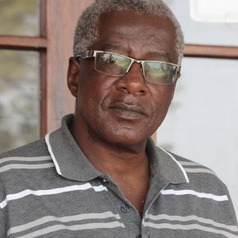
Karume Baderha Augustin Gang
Doctoral Candidate, Université Evangélique en Afrique
Gang Karume is a DRC native Bio-environmentalist with more than two decades of humanitarian and development work experience in both operations and programming. He has worked both as national and international staff serving in various positions including Emergency Operations Director, Regional Operations Director and Country Director in Chad, Sierra Leone, Central African Republic, the Great Lakes Region, South Sudan, Congo Brazzaville…He has worked with many international research institutions and Universities including Transition International, 3Ie (The International Initiative for Impact Evaluation), Columbia University, Tufts University. With Transition International, he contributed to the evaluation of humanitarian aid in DRC for the period between 2003 and 2013.
With 3Ie, Gang contributed to the impact evaluation feasibility study design for a Community Driven Emergency Response and Reconstruction in return areas. With Gang contribution, Columbia University team has published in South and Nork Kivu provinces several research reports using both qualitative and quantitative methods. Reports include the UN1612 human rights violations, access to formal and informal education, improving surveillance of attacks on children education, Non-food items post fair evaluation…to name a few. Gang has an exceptional knowledge of the great lakes' region, its context and power dynamics and carried out many assessments related to peace and regional integration. He is currently supporting a national non-profit organization Rebuild Hope for Africa (RHA) as Technical Advisor and just coming from Central Africa Republic where he spearheaded a countrywide mortality survey. See https://doi.org/10.1186/s13031-023-00514-z
Less ![]()
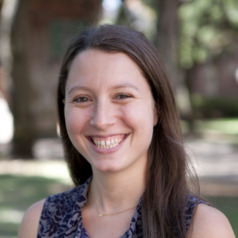
Karyn Amira
Associate Professor of Political Science, College of Charleston
Karyn Amira joined the Department of Political Science in August of 2015. Her research interests are in American Politics and Political Psychology with specializations in ideology, public opinion, media influence, political behavior and experimental methodology. She teaches courses in Media and Politics, Political Psychology, Research Methods, Political Parties and Capstone.
Her current research agenda is centered on affective polarization and candidate perception, although she has also been involved in recent projects on authoritarianism and Donald Trump's effects on the Republican Party. Her work has been published or is forthcoming in Perspectives on Politics, The Journal of Politics, Political Behavior, American Politics Research, Social Science Quarterly, The Journal of Experimental Political Science, The Journal of Political Science Education and International Journal of Politics, Culture and Society. View more information here: www.KarynAmira.com
Less ![]()
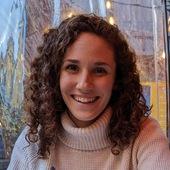
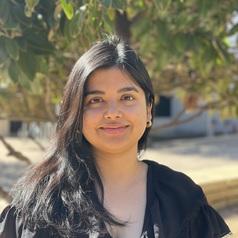
Kashmiri Medhi
Visiting Assistant Professor of Political Science, University of Texas at Dallas
I am a Visiting Assistant Professor in the Department of Political Science at the School of Economic, Political & Policy Sciences at the University of Texas at Dallas.
Less ![]()

Kassem Fawaz
Associate Professor of Electrical and Computer Engineering, University of Wisconsin-Madison
Less ![]()

Kat Ford
Research Fellow in the Public Health Collaborating Unit, Bangor University
Kat is the research lead in the Public Health Collaborating Unit, School of Health Sciences, Bangor University.
Kat’s research interests include violence prevention, specifically adverse childhood experiences (ACEs). Kat has led a number of regional and national ACE studies and the first study in the UK to explore the prevalence of ACEs in an offender population. Kat is a mixed-methods researcher with expertise in survey design, evaluation, systematic reviews and evidence synthesis. Kat also has experience of conducting research with vulnerable populations and in high-risk environments.
Kat's role is funded by Public Health Wales and she works closely with the World Health Organization Collaborating Centre on Investment for Health & Well-being.
Less ![]()
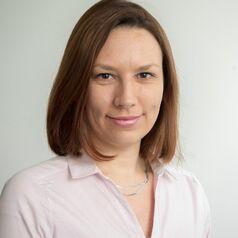
Kata Farkas
Environmental Virologist, School of Natural Sciences, Bangor University
I competed my PhD in microbiology at the University of Canterbury, New Zealand in 2014. My research focused on the fate and behaviour of enteric viruses in groundwater. After finishing my studies, I was involved in various project that uses viral metagenomics approaches to identify viruses (both known and novel) in various ecosystems. Since 2015, I have been working at the Bangor University, on the Viraqua Project (www.viraqua.uk; 2015-2018) and at the Shellfish Centre (2019-2022) and on th eimplementation of wastewater-based epidemiology (WBE) for SARS-CoV-2 and other viral pathogens (2020, ongoing).
My research focuses on the ecology and survival of viruses in the aquatic environment with a special interest in the fate of enteric viruses. Enteric viruses are responsible for the majority of gastroenteral illnesses globally putting an enormous burden on healthcare systems and the wider economy. These pathogens are often found in water reservoirs (recreational and drinking water sources, shellfish harvesting areas) and hence responsible for water- and foodborne outbreaks. I am also leading the R&D activities for the Welsh WBE programme.
Less ![]()
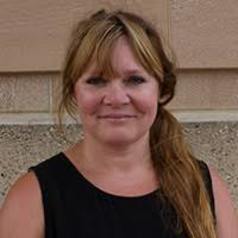
Katarina Fritzon
Associate Professor of Psychology, Bond University
I have a Masters in Investigative Psychology and my PhD thesis was on the psychology of fire-setting. I am a registered psychologist with the Psychology Board of Australia, and have practice endorsements in Clinical and Forensic Psychology.
Less ![]()
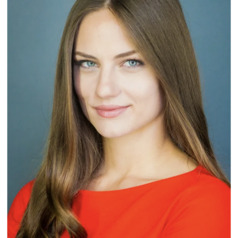
Katarina Kovacevic
PhD student, Social and Personality Psychology, York University, Canada
Kat is currently a PhD student of the Social and Personality Psychology Program at York University and runs Kat Kova Therapy, a group psychotherapy practice in Toronto, ON. She holds a Masters of Science Degree in Couple & Family Therapy Program from the University of Guelph, an Honours BA Degree in Psychology from York University and a Certificate in Sexuality Studies from York University. She is an Associate Member of BESTCO (Board of Examiners of Sex Therapy and Counselling in Ontario). Her research is centred on how romantic partners can maintain relationship and sexual satisfaction, and has been published in the Journal of Sex Research. She has presented her research at The International Association for Relationship Research, The Canadian Psychological Association, The Society for the Scientific Study of Sexuality, SEXposium, and gave an award-winning talk on her research at the Canadian Sex Research Forum conference in 2022.
Less ![]()
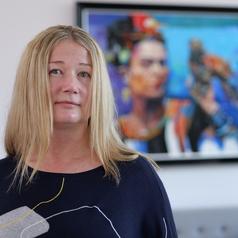
Katarzyna Kosmala
Chair in Culture Media and Visual Arts, University of the West of Scotland
A curator, and art writer. Chair in Culture, Media and Visual Arts at the University of the West of Scotland. Previously, a visiting research fellow at GEXcel, Institute of Thematic Gender Studies, Linköping University & Örebro University, Sweden, and Visiting Professor at the Getulio Vargas Foundation in Rio de Janeiro, Brazil. Areas of research: gender and the politics of representation, heritage and identity, and discourses of creativity and community in the context of a globalizing network society, as well as art production and enterprise. Founder and Co-leader for Curating Europes’ Futures -discursive series on contemporary curatorial and artistic practices that have evolved within the shifting and uneven economic and socio-political relations across an expanding European Project whilst raising questions over different kinds of constructed identities. Between 2012-2022, chaired the Interdisciplinary Research Network Regeneration and Waterfront Heritage Zones in Northern Europe. Resulted research led to several research projects concerned with culture, heritage and regeneration of waterfront spaces associated with maritime production and histories, looking at the role of arts and the effectiveness of community-led initiatives in planning as well as participatory practice in heritage protection. Born in Poland, lives in Edinburgh, Scotland.
Less ![]()
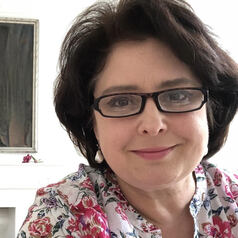
Katarzyna Zechenter
Associate Professor in Polish Literature and Culture, UCL
Dr Katarzyna Zechenter is an Associate Professor at the School of Slavonic and East European Studies, UCL. Katarzyna specializes in Polish contemporary literature and the history of ideas, specifically suffering and cultural trauma in Poland. She is the author of the first English language monograph of Tadeusz Konwicki ("The Fiction of Tadeusz Konwicki: Coming to Terms with Post-war Polish History and Politics"), and the editor of a highly popular book on bilingualism ("Bilingual and Bicultural: Speaking Polish in North America') that ran to three editions - two in the UK and one in the USA.
She has written on the transformation of post-1989 spatial identity; the concept of suffering; memory and identity formation, on Polish-Jewish literature, and bilingualism.
Katarzyna is also an award-winning poet whose poems regularly appear in major literary journals in Poland. Her last volume of poetry, 'There and Here', (Tam i tutaj: Poznań 2019) was nominated for *Orfeusz Literary Prize for 2019* and won *The Best Book Award of the Union of Polish Writers Abroad*. Her poems in English appear in The Bangalore Review or in Bhutan (Tashi Delek).
Less ![]()
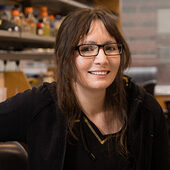
Kate Adamala
Assistant Professor of Genetics, Cell Biology and Development, University of Minnesota
Less ![]()
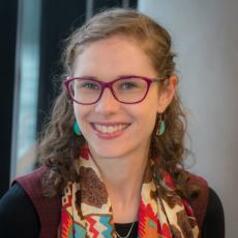
Kate Anderson
Associate Head of School, Teaching and Learning (Health, Disability & Inclusion), Deakin University
Dr Kate Anderson is a senior lecturer and researcher at Deakin University, Melbourne. Kate grew up in a family of educators and is driven by her passion for education and inclusion across the lifespan. Kate is a qualified speech pathologist and has worked in the areas of cerebral palsy, autism, and assistive technology. Her primary research explores how communication about health services and technologies can be made more accessible for people with disability or diversity. She is passionate about co-design and consumer consultation, and teaches inclusive design methods to students from a wide range of disciplines. Kate is also a Fellow of Deakin's Centre for Research in Assessment and Digital Learning (CRADLE).
Less ![]()

Kate Andrias
Professor of Law, Columbia University
Kate Andrias teaches and writes in the fields of constitutional law, labor law, and administrative law. Her scholarship probes the failures of U.S. law to protect workers’ rights, examines the efforts of historical and contemporary worker movements to transform legal structures, and analyzes how labor law and constitutional governance might be reformed to enable greater political and economic democracy. Drawing from constitutional law, administrative law, and legal history perspectives, she also has explored the relationship between law and the perpetuation of economic inequality. She frequently provides advice on policy initiatives to legislators and workers’ rights organizations and works on related litigation. Andrias is a co-director of the Columbia Labor Lab and the Columbia Law School Center for Constitutional Governance.
Prior to law school, Andrias worked for several years as an organizer with the Service Employees International Union. After receiving a J.D. from Yale Law School, she clerked for Judge Stephen Reinhardt of the U.S. Court of Appeals for the 9th Circuit and for Justice Ruth Bader Ginsburg ’59 on the U.S. Supreme Court. Andrias practiced political law at Perkins Coie and served as associate counsel and special assistant to President Barack Obama and as chief of staff in the White House Counsel’s Office.
She joined the faculty of Michigan Law School in 2013 and was the recipient of its L. Hart Wright Award for Excellence in Teaching in 2016. She joined the faculty of Columbia Law School in 2021 and also has served as an academic fellow at Columbia Law School and taught American Constitutional Law as a visiting professor at L'Institut d'Études Politiques (Sciences Po) in Paris. Andrias served as a commissioner and the rapporteur for the Presidential Commission on the Supreme Court, is a member of the American Law Institute, and sits on the Board of Academic Advisors of the American Constitution Society.
Less ![]()
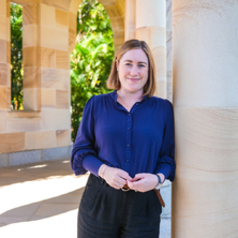
Kate Ariotti
ARC DECRA Senior Research Fellow, The University of Queensland
Dr Kate Ariotti is an ARC DECRA Senior Research Fellow in the School of Historical and Philosophical Inquiry at the University of Queensland. Her research examines the social and cultural impacts of war in Australia. She has published on wartime captivity and the experiences of Australian prisoners of war – including the 2018 book Captive Anzacs: Australian POWs of the Ottomans during the First World War (Cambridge University Press), which was nominated for the inaugural Les Carlyon Literary Award – as well as the ways in which Australians have historically remembered and commemorated wars. In 2017 she edited with Dr James Bennett Australians and the First World War: Local-Global Connections and Contexts (Palgrave).
Her current ARC-funded project ‘Between Death and Commemoration: An Australian History of the War Corpse’ will provide the first comprehensive account of the changing policies, practices and attitudes that have shaped the treatment of the physical remains of Australian war dead between the First World War and recent wars in the Middle East (1915-2015). This project will provide a valuable new perspective on the realities of Australian participation in war and a critical understanding of the place of death in war in the Australian past and present.
Kate teaches 19th and 20th century Australian history, and supervises both honours and postgraduate students working on research projects within this rich field. Several of her students have won prestigious national prizes for their work.
Kate has been a participant in several writer’s festivals, public symposia, and museum exhibitions, and has served as a judge for the NSW Premier's History Awards. Before commencing her position at the University of Queensland, Kate worked as a Historian in the Military History Section of the Australian War Memorial and, most recently, in the School of Humanities and Social Science at the University of Newcastle
Less ![]()
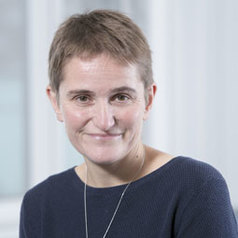
Kate Black
Professor / Head of Education, Northumbria University, Newcastle
Academic qualifications
PhD examined professionals' learning working as multi-agency teams within Children's Services (2010-2013, Lancaster)
MBA completed in 2009 (Chester)
Also hold PGCE (Aberystwyth, 1999), MSc (Bangor, Ecology, 1995), BSc Hons (Reading, Physical Geography, 1994)
Professional qualifications
Principal Fellow of HEA (PFHEA)
Certified Management and Business Educator (CMBE)
Member of CIPD (MCIPD)
Less ![]()

Kate Booth
Associate Professor of Human Geography, University of Tasmania
Kate Booth is Associate Professor of Human Geography in the School of Geography, Planning, and Spatial Sciences. Her work addresses socio-ecological inequity in the context of rapid and unprecedented global change.
She leads a strategic insurance research program, investigating on the intersections of geography, insurance and society. This program is the only program of its kind in Australia. Kate’s research has established her as a world leader in insurance in a changing climate. She is instrumental in defining the field of critical insurance studies.
Kate also leads the University of Tasmania’s postgraduate planning program and the professionally accredited Master of Planning. She co-ordinates the Master’s thesis stream, and teaches regional and urban planning. Her teaching addresses rising inequity and the escalating economic and social impacts and risks of unmitigated climate change.
Less ![]()
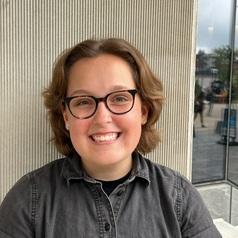
Kate Brantley
Research Area Specialist, University of Michigan
Kate Brantley, MSW, is a research area specialist at Housing Solutions for Health Equity at the University of Michigan. Their work focuses on eviction injustice, the consequences of forced displacement for mental health and community well-being, and structural change that affirms housing as a human right.
Less ![]()
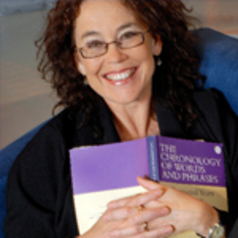
Kate Burridge
Kate Burridge is a prominent Australian linguist and the current Chair of Linguistics at Monash University.
Kate completed her undergraduate training in Linguistics and German at the University of Western Australia. This was followed by three years postgraduate study at the University of London. Kate completed her PhD in 1983 on syntactic change in medieval Dutch.
Amongst other things, Kate is also the author of many books, a regular guest on ABC radio and recently presented a TED talk in Sydney on Euphemisms in English.
Less ![]()
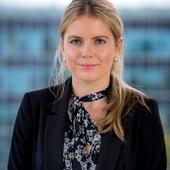
Kate Churruca
Senior Research Fellow in the Centre for Healthcare Resilience and Implementation Science at the Australian Institute of Health Innovation, Macquarie University
Less ![]()
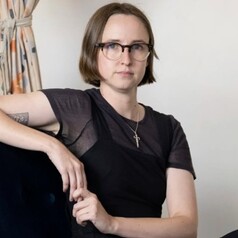
Kate Clark
Node Administrator, ARC Centre of Excellence for Automated Decision-Making & Society, Monash University
Less ![]()
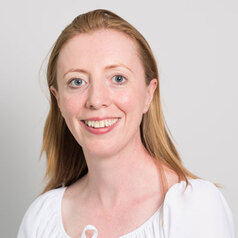
Kate Dashper
Professor, School of Events, Tourism and Hospitality Management, Leeds Beckett University
Professor Kate Dashper is the Director of Research Degrees in the School of Events, Tourism and Hospitality Management. Her research applies a critical sociological lens to examine practices of work and leisure, particularly focusing on gender issues and interspecies encounters.
Kate is an internationally recognised researcher for her work in human-animal studies. Through her research on equestrian sport and leisure, Kate examines how humans and nonhumans work and play together, and the interspecies relationships that can develop through joint action and interaction. Her research considers the potential contributions that multispecies perspectives can make to understanding events, tourism and hospitality practices and organisations. She is author of the 2017 monograph Human-animal Relationships in Equestrian Sport and Leisure (Routledge) and co-editor of the first book on multispecies events, Humans, horses and Event Management (CABI, 2021).
Kate’s other main area of expertise is gender, and she has conducted research and consultancy projects within both the events and equestrian industries, evaluating gender equality initiatives in organisations and exploring the gendered experiences of women and men within professional and leisure contexts. She is editor of Sport, Gender and Mega-events (Emerald, 2021).
Less ![]()
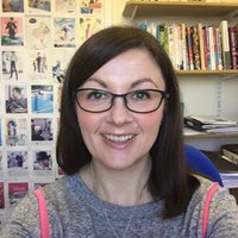
Kate Daunt
Professor of Marketing, Cardiff University
Kate’s research interests include consumer misbehaviour, dysfunction during service, service design, social media dynamics disinformation and behavioural change. Kate was awarded Cardiff Business School’s Martin Evans award for excellence for teaching for 2018. Kate serves on the editorial boards of the Journal of Service Research, Journal of Business Research, Journal of Marketing Management and Journal of Services Marketing. Kate is a professional member of the Chartered Institute of Marketing (MCIM), a Fellow of the Higher Education Academy (FHEA) and a member of the Beta Gamma Sigma International Business Honour Society.
Less ![]()

Kate Delmo
Senior Lecturer and Head of Discipline of Strategic Communication, University of Technology Sydney
Kate Delmo's research interests are explore the intersection between data, technology, and people. Her areas of interests are in digital influencers, social media literacy and disaster risk resilience, and organisational risk, issue and crisis communication. She teaches both in the undergraduate and postgraduate programs in Strategic Communication at UTS.
Less ![]()
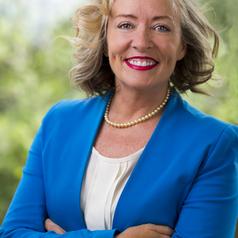
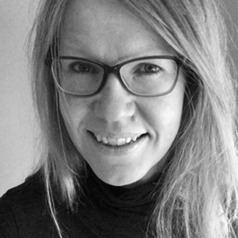
Kate Dossett
Professor of American History, University of Leeds
Kate is an award-winning historian of the twentieth century United States with broad interests in cultural and political history and specializations in African American History, Gender histories and histories of the African Diaspora. She has published widely on Black Theatre, the Harlem Renaissance, Black Feminism and the history of the archive. Her current research examines how the collection of Black cultural archives by the British and U.S governments in the early twentieth century shapes access to and knowledge production about black history and heritage today. Supported by the Independent Social Research Foundation and British Library Eccles Centre Fellowship, the project explores the relationship between Black British and African American theatre by examining Black theatre manuscripts collected by the state
Less ![]()
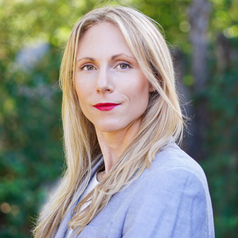
Kate Dutton-Regester
Lecturer, Veterinary Science, The University of Queensland
I am a wildlife conservationist with expertise in wildlife reproduction and behaviour. I also have a background in veterinary epidemiology and One Health.
Less ![]()

Kate Ferry-Swainson
PhD Researcher, Department of Languages, Literatures and Cultures and Holocaust Research Institute, Royal Holloway University of London
Kate Ferry-Swainson is an AHRC-sponsored technē DPT PhD researcher in the department of Languages, Literatures and Cultures and the Holocaust Research institute at Royal Holloway, University of London.
Less ![]()

Kate Fitch
Senior Lecturer, Communications and Media, Monash University
Dr Kate Fitch is a Senior Lecturer in the School of Media, Film and Journalism at Monash University. Her research foregrounds critical and sociocultural understandings of public relations, drawing on historical, feminist and social justice perspectives. Her first monograph, Professionalizing Public Relations: History, Gender and Education (Fitch, 2016, Palgrave) remains the only book-length, historical investigation of the development of the industry in Australia. Her second book, Popular Culture and Social Change: The Hidden Work of Public Relations (Fitch & Motion, 2021, Routledge) offers a critical account of the broader societal impact of public relations. Dr Fitch co-edits Public Relations Inquiry.
Less ![]()
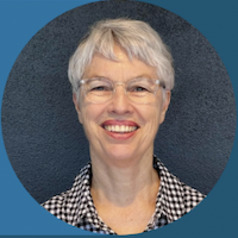
Kate Freiberg
Adjunct Associate Professor in, Griffith University
Kate Freiberg, Adjunct Associate Professor at Griffith University, is Director of Research and Development at RealWell. Her work draws together developmental psychology and prevention science. She maintains a strong focus on the development of accessible resources and methodologies to support frontline professionals, schools, child serving organisations, and policy makers who strive to achieve better outcomes for children and families living in challenging environments.
Less ![]()
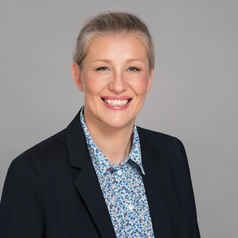
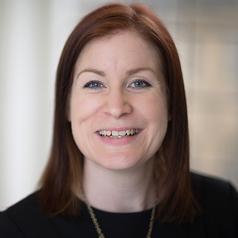
Kate Hamblin
Sustainable Care Research Fellow, University of Sheffield
Kate joined the University of Sheffield to work on the Sustainable Care Programme in 2018. Previously she worked at the University of Oxford for almost nine years on projects exploring the balance between unpaid care and paid employment; self-employment and ageing; technology and its role in the care of older people with complex needs; and the role of museums and galleries in promoting wellbeing.
The Sustainable Care programme is highly relevant to Kate’s research interests. Its ambitious agenda looks to inform the design and delivery of care systems to promote the wellbeing of both those providing and receiving care. It is this aim and the inclusion of international partnerships to encourage cross-national debate and discussion that attracted her to the programme.
Kate is working on the overarching theoretical work package as well as those which focus on the role of technology in the provision of care, new models of care provision and support for those combining work and care.
Less ![]()

Kate Harrington
Lecturer of Clinical Pathophysiology and Family Nurse Practitioner, Kennesaw State University
Less ![]()
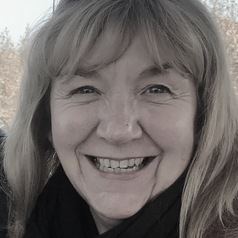
Kate Heathman
Senior Lecturer, Journalism, Liverpool John Moores University
Kate Heathman began her career in weekly and daily regional newspapers where she was a writer, copy editor and columnist. She has been teaching Journalism since 2000 and her research interests include community reporting, simulated newsrooms in the classroom and political communication on Twitter.
Less ![]()
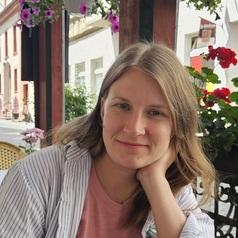
Kate Hunt
Lecturer in International Studies, Indiana University
My research focuses on the intersection of social movements and media, especially social media, and debates over women's rights. I study this comparatively, and have published research on social movement organizations working across Ireland, Canada, and the United States.
Less ![]()
- Market Data





















